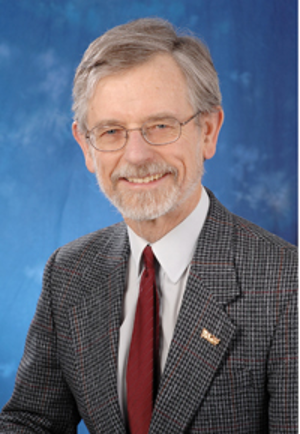MLA | SLA ’23 Continuing Education: Meet Robert Holley, the Instructor of “Developing a Collection for All Your Patrons: A Workshop on Writing a Collection Development Policy”
 In the weeks leading up to MLA | SLA ’23 in Detroit, we’ll profile instructors and their courses. This week, Robert P. Holley, PhD, the instructor of Developing a Collection for All Your Patrons: A Workshop on Writing a Collection Development Policy, shares his recommendations for things to do in Detroit, how he got interested collection development policies, and how his course can help you develop skills that will enable you to better serve your library and advance in your career.
In the weeks leading up to MLA | SLA ’23 in Detroit, we’ll profile instructors and their courses. This week, Robert P. Holley, PhD, the instructor of Developing a Collection for All Your Patrons: A Workshop on Writing a Collection Development Policy, shares his recommendations for things to do in Detroit, how he got interested collection development policies, and how his course can help you develop skills that will enable you to better serve your library and advance in your career.
To see all the CE courses, visit MLA | SLA ’23 Continuing Education. If you’ve already registered for the conference, open the Registration Form and click ”Already Registered” to add a course.
What are you most looking forward to seeing/eating/experiencing in Detroit?
I live in the Detroit area. I recommend that people new to Detroit visit the Detroit Institute of Arts, one of the best art museums in the United States and quite reachable from the downtown area, and take a walk along the Detroit River with its views of Windsor, Ontario.
What problems, obstacles, or lack of knowledge might your intended audience experience that your course addresses?
Writing a Collection Development Policy (CDP) forces an institution to define its users, identify their information needs, and find the best ways to meet these needs. Meeting the needs includes deciding on the most appropriate formats and the amount of funding to allocate to various formats and subjects. The CDP should also indicate important outside resources and provide guidance on how to access them. Finally, the CDP should include practical policies on matters such as dealing with secondary users, rules for accepting gifts, preservation policies, and special collections.
What practical, immediately applicable information or skills will learners gain from your course?
Learners will discover the complexities of collection development and the need to make decisions and formulate policies to meet the goals of providing information to users in the most effective ways. Learners will also take away knowledge of the various components of the CDP and how to go about creating a CDP.
How will your course help learners provide value to their employers and advance in their careers?
Using collection development funds effectively, forging cooperative agreements, and dealing with internal policies are important skills for library administrators. Creating a CDP will give librarians skills in this area that are in demand in all libraries and will help them advance in their career.
How did you get interested in your topic and what most excites you about it?
I have either taught collection development or managed collections since 1980, including creating a CDP for the Marriott Library, University of Utah. I remain excited by the complexity of the topic and the need to follow contemporary developments, such as open access, resource sharing/collective purchasing, ensuring diversity, and the increased importance of digital resources, including databases, e-books, and datasets.
What’s the main thing you hope learners will take away from your course?
I hope that learners will understand the importance of having a CDP, its main goals, its components, and the steps in its creation.

